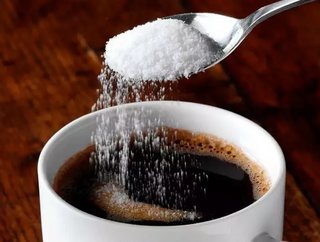Tate & Lyle examines stevia supply chain sustainability with Earthwatch and Sweet Green Fields

One of the world’s leading provider of solutions and ingredients for food, beverage and industrial markets, has launched a sustainability project that will examine the supply chain of one of its biggest brands.
Tate & Lyle announced in a statement this week that it will be conducting a new research project with its stevia partner Sweet Green Fields and Earthwatch to assess the sustainability of its stevia sweetener supply chain. Earthwatch is an international non-profit environmental science-based organisation and will be leading the supply chain review. The project will look to identify sustainable growing practices and socio-economic benefits are maximised as the stevia market continues to grow.
Stevia is a naturally sourced low calorie sweetener that is increasingly popular with food and beverage producers looking for consumer-friendly, great-tasting sugar alternatives that help them to reduce sugar and calories in their products.
Scientists in China, led by Earthwatch, have already begun conductng on-the-ground research and will focus on soil analysis, water, waste and energy impacts throughout the value chain. Earthwatch will also engage with a wide range of stakeholders in the stevia supply chain, from seedling producers to family-run planters and industrial farms.
SEE ALSO:
-
Cargill unveils ‘Protect our Planet’ plan to improve supply chain sustainability
-
Diageo to source 80% of raw materials through sustainable agricultural supply chains
As a leading provider of stevia to the food industry, Tate & Lyle wants to ensure that using stevia in greater quantities in the future as a replacement for sugar is a responsible choice for Tate & Lyle, as well as a healthy choice for consumers around the world,” said Abigail Storms, VP Sweetener Platform and Global Platform Marketing at Tate & Lyle. “We are proud to be working with our partners Sweet Green Fields and Earthwatch to support sustainable stevia production to ensure that stevia not only improves consumer lives, but also supports sustainable livelihoods and farming practices in the supply chain, with minimal impact on the environment.”
"Stevia farming is a key economic activity in many areas in China and a rapidly growing global ingredient for sugar replacement,” said Steven Loiselle, Senior Research Manager at Earthwatch. “Our project, working with leading researchers, producers and others, shows how multi-partner collaborations can be used to promote sustainable production. By working with local scientists and experts within China we are developing new knowledge for both Tate & Lyle, the broader stevia industry and local communities.”
- Supplier Collaboration Key to Johnson & Johnson Climate PushSustainability
- How the C3 AI Supply Chain Suite Drives Increased ResilienceTechnology
- The Art of Supply Chain Planning with Gartner, SAP, KinaxisSupply Chain Risk Management
- Top 10: Women in Supply Chain in the Middle East and AfricaOperations






